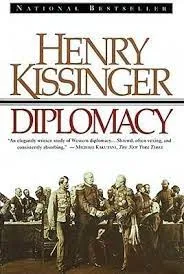The Pragmatic Mind of Henry Kissinger: A Distinctive Takeaway
The Pragmatic Mind of Henry Kissinger: A Distinctive Takeaway:
Henry Kissinger, a towering figure in 20th-century international relations, served as the United States' National Security Advisor and Secretary of State during a period of profound global transformation. His tenure was marked by a pragmatic approach to diplomacy, often prioritizing realpolitik over idealism. Despite his controversial legacy, Kissinger's insights into international relations remain relevant today.
Kissinger's pragmatic approach was rooted in a deep understanding of history and the dynamics of power. He believed that nations act in their own self-interest, and that diplomacy's primary goal is to manage conflict and maintain a semblance of order in an inherently chaotic world. This approach led him to engage with adversaries, such as the Soviet Union and China, even when it was politically unpopular.
Kissinger's pragmatism was also evident in his willingness to compromise and make difficult decisions. He recognized that the pursuit of perfect solutions often leads to inaction and paralysis, and that compromise is essential for achieving progress in diplomacy. This willingness to compromise was evident in his role in the Vietnam War and the Arab-Israeli conflict.
Kissinger's legacy is complex and contested. Critics argue that his pragmatism often came at the expense of moral considerations, and that his policies had devastating consequences for millions of people. Supporters, on the other hand, argue that Kissinger's realism and willingness to engage with adversaries were essential for maintaining stability during a tumultuous period in history.
Regardless of one's perspective on Kissinger's legacy, there are enduring lessons to be learned from his pragmatic approach to diplomacy. In a world increasingly characterized by complexity, uncertainty, and the rise of new powers, Kissinger's insights into the dynamics of power and the importance of diplomacy remain relevant.
Key takeaways from Kissinger's pragmatic approach:
Engagement over isolation: Kissinger believed that engaging with adversaries, even those with whom we have fundamental disagreements, is essential for managing conflict and preventing war. Isolationism, he argued, only breeds resentment and increases the risk of conflict.
Realpolitik over idealism: Kissinger was a realist who believed that nations act in their own self-interest. While he recognized the importance of values and ideals in international relations, he argued that these principles must be tempered with a pragmatic understanding of the realities of power politics.
Compromise for progress: Kissinger understood that compromise is often necessary to achieve progress in diplomacy. He was willing to make difficult decisions and accept imperfect solutions in order to advance the national interest.
Long-term thinking over short-term gains: Kissinger was a strategic thinker who focused on the long-term implications of his actions. He believed that short-term gains often come at the expense of long-term stability and peace.
Despite these criticisms, Kissinger's insights into the dynamics of power and the importance of diplomacy remain relevant today. In a world increasingly characterized by complexity, uncertainty, and the rise of new powers, Kissinger's pragmatic approach offers a valuable framework for understanding and navigating the challenges of international relations.
Conclusion
Henry Kissinger's legacy is complex and contested, but his insights into the dynamics of power and the importance of diplomacy remain relevant today. His pragmatic approach, characterized by engagement, realism, compromise, and long-term thinking, offers valuable lessons for navigating the challenges of international relations in the 21st century.










Comments
Post a Comment